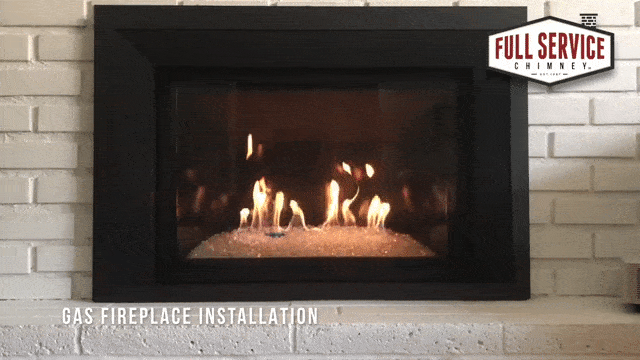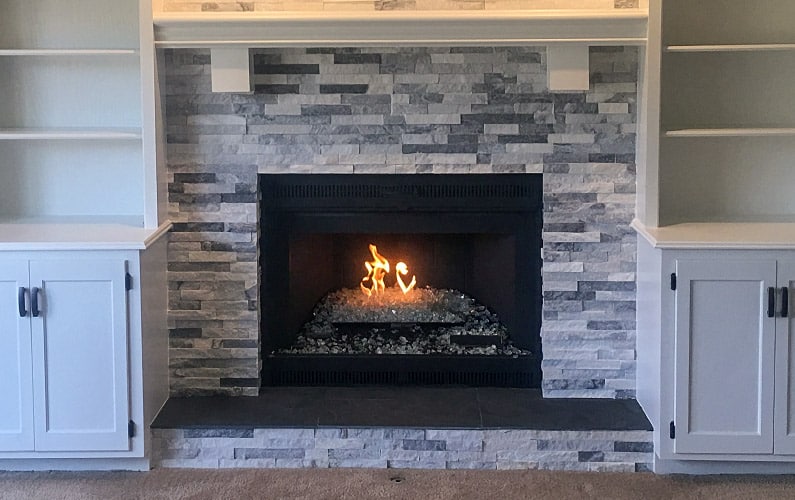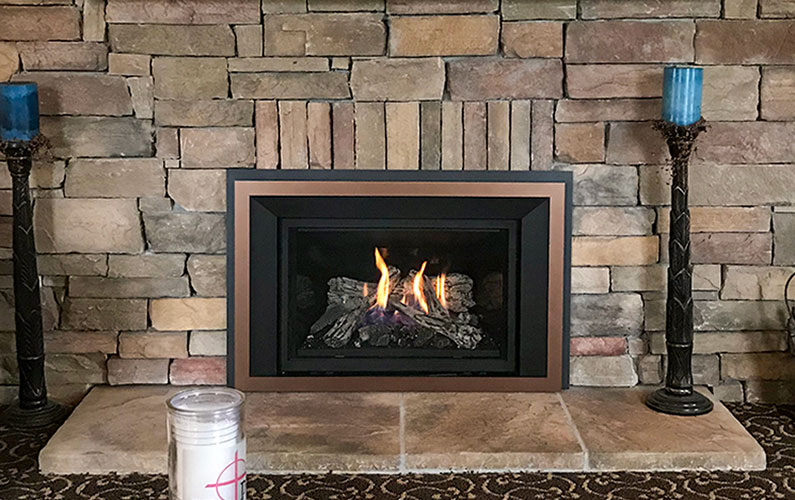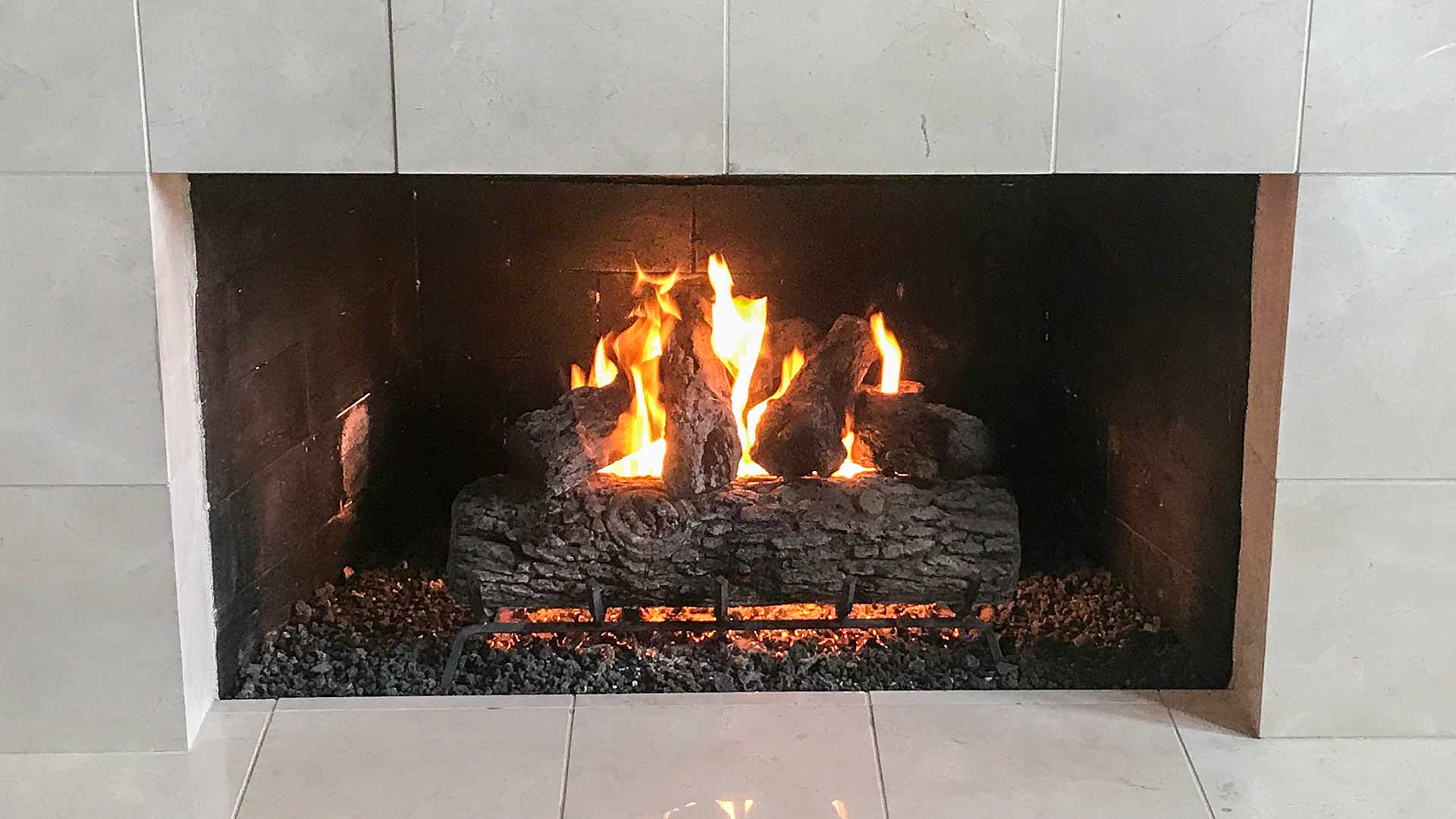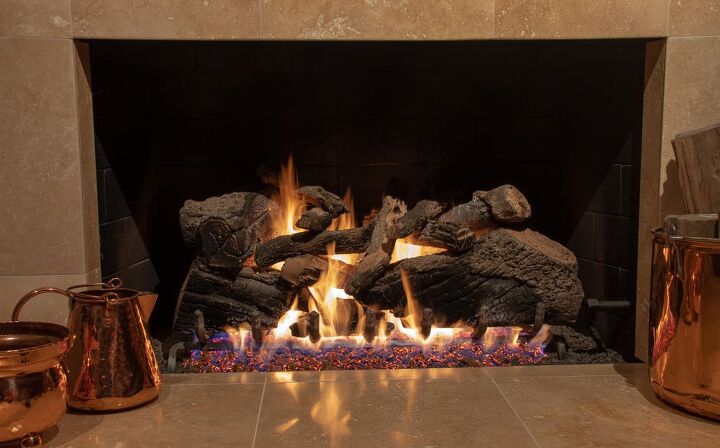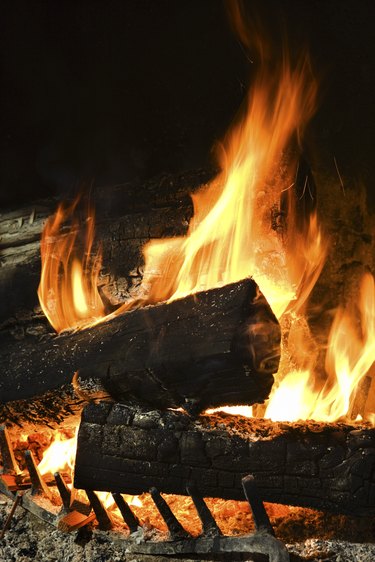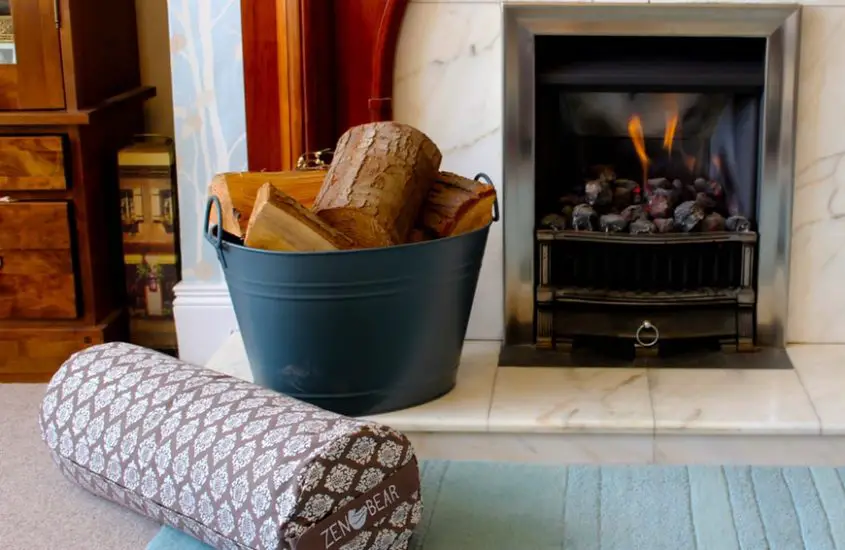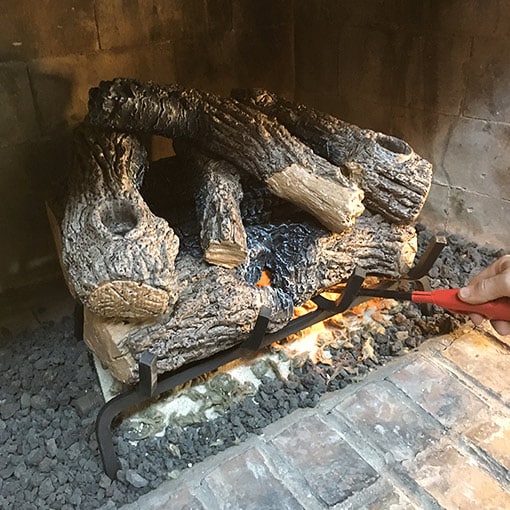Natural gas fireplaces are a popular choice for homeowners seeking a convenient and efficient way to heat their homes. However, one potential concern that some individuals may encounter with natural gas fireplaces is an unpleasant smell. The smell associated with natural gas fireplaces can vary, but it is typically described as a “rotten egg” or sulfur-like odor. This distinct smell is actually a safety feature designed to alert individuals to the presence of a gas leak.
Images about Natural Gas Fireplace Smell
Natural Gas Fireplace Smell

The odor in natural gas fireplaces is caused by an additive called mercaptan, which is added to the gas to make it easily detectable. Mercaptan has a strong, pungent odor that is highly noticeable even in small quantities. This odor serves as a warning sign, ensuring that individuals can quickly identify a gas leak and take necessary precautions to prevent any potential hazards.
If you detect a strong odor coming from your natural gas fireplace, it is crucial to take immediate action. First, ensure that all windows and doors are open to ventilate the area and allow any gas to dissipate. Next, do not operate any electrical switches or appliances, as this can create a spark that could ignite the gas. Instead, leave your home immediately and contact your gas provider or emergency services to report the suspected gas leak.
To prevent the smell of natural gas in your fireplace, regular maintenance and inspections are key. It is recommended to have your natural gas fireplace serviced annually by a qualified professional. They can inspect the fireplace, clean any debris or buildup, and check for any potential leaks. Additionally, ensure that your gas fireplace is properly vented and that the flue is clear from any obstructions. Regular maintenance and inspections will not only help to prevent any unpleasant smells but also ensure the safe and efficient operation of your natural gas fireplace.
The smell associated with natural gas fireplaces is a safety feature meant to alert individuals to the presence of a gas leak. The distinct odor, often described as a “rotten egg” or sulfur-like smell, is caused by an additive called mercaptan. If you detect this smell, it is crucial to take immediate action, ensure proper ventilation, and contact your gas provider or emergency services. Regular maintenance and inspections are essential in preventing any unpleasant smells and ensuring the safe operation of your natural gas fireplace.
Here’s Why Your Gas Fireplace Stinks » Full Service Chimney™
Gas Fireplace Insert Smells Like Burning Plastic?
Do Gas Fireplaces Smell? – Fireplace Universe
My fireplace smells like gas: What to do u0026 1 Simple, Quick Fix
Why your fireplace is emitting weird smell and what to do then
Why Does My Gas Fireplace Smell Like Kerosene? Hunker
What to Do if Your Gas Fireplace Smells Musty – HumeShed
Hereu0027s Why Your Gas Fireplace Stinks » Full Service Chimney™
Related Posts:
- Vent Free Gas Fireplace Logs
- Portable Gas Fireplace Heater
- Gas Fireplace Design
- Indoor Gas Fireplace Ideas
- Natural Gas Fireplace Reviews
- Gas Fireplace Energy Efficiency
- Contemporary Gas Fireplace Inserts
- Gas Fireplace Draft Cover
- Gas Fireplace Child Safety Screen
- Gas Fireplace Finishing Ideas
Natural Gas Fireplace Smell
Natural gas fireplaces provide a cozy and convenient way to heat our homes during colder months. However, occasionally, homeowners may notice an odor emanating from their gas fireplaces. This article aims to explore the various causes of natural gas fireplace smell, potential solutions to eliminate it, and address frequently asked questions related to this issue.
Understanding the Causes of Natural Gas Fireplace Smell
Natural gas fireplace smells can result from several factors. Let’s delve into each aspect:
Unburned Natural Gas:
One possible cause of a gas fireplace smell is unburned natural gas. When a fireplace fails to ignite or experiences incomplete combustion, residual natural gas may escape, leading to an unpleasant odor.
Ventilation Issues:
Insufficient ventilation can also contribute to gas fireplace smells. If the fireplace does not have proper airflow or if the chimney or flue is obstructed, gases can accumulate within the living space rather than venting outside.
Dirty Burners or Logs:
Over time, dust, debris, or soot may accumulate on the burners or logs in a gas fireplace. When these components are not regularly cleaned and maintained, they can emit an unpleasant smell when the fireplace is in use.
Decomposing Animals or Debris:
In rare cases, a foul odor can result from animals or debris finding their way into the chimney or venting system. It’s essential to inspect these areas periodically to prevent blockages that can lead to unwanted smells.
Solutions for Eliminating Natural Gas Fireplace Smells
If you’ve detected an odor coming from your natural gas fireplace, there are several potential solutions you can consider:
Proper Ventilation:
Ensure that your fireplace has adequate airflow by opening any vents or windows in the room where the fireplace is located. Additionally, have a professional inspect and clean your chimney regularly to prevent blockages and ensure proper ventilation.
Professional Inspection and Maintenance:
To address any underlying issues, it’s advisable to schedule a professional inspection of your gas fireplace system. Trained technicians can clean the burners, logs, and other components while also identifying any potential leaks or malfunctions that may be causing the smell.
Cleaning the Fireplace:
Regular cleaning of the fireplace is crucial to prevent odor-causing build-up. Remove and clean the logs, burners, and other components according to the manufacturer’s instructions. Additionally, vacuum or sweep out any dust or debris from the fireplace to maintain a clean and fresh-smelling environment.
Checking for Animal Intrusion:
If you suspect an animal may be trapped within your chimney or venting system, it is vital to seek professional assistance. Wildlife removal experts can safely remove any deceased animals or nests, eliminating any associated odor.
Frequently Asked Questions (FAQs) about Natural Gas Fireplace Smell
Why does my natural gas fireplace smell like rotten eggs?
A strong smell resembling rotten eggs is often a sign of a gas leak. Natural gas companies add a distinctive odorant called mercaptan to help detect leaks easily. If you notice this smell, immediately evacuate your home and contact your gas company for assistance.
Can I fix a gas fireplace smell by using air fresheners or deodorizers?
Using air fresheners or deodorizers may temporarily mask the odor but will not solve the underlying issue causing the smell. It is essential to identify and address the root cause of
One of the common issues with gas fireplaces is the smell that can accompany their operation. This can be caused by a variety of factors, such as a build-up of dirt and debris in the fireplace or improper combustion of the gas. While there are temporary solutions to mask the smell, such as using scented fire logs or air fresheners, it is important to address the underlying cause to eliminate the odor permanently.
The first step in tackling this issue is to ensure that your gas fireplace is clean and free from any debris or buildup. Regularly cleaning the fireplace and its components, such as the burner, logs, and vents, can help prevent odors from developing. Use a soft brush or vacuum cleaner to remove any loose dirt or dust, and wipe down the surfaces with a damp cloth.
Next, check if your gas fireplace is properly ventilated. Inadequate ventilation can lead to poor combustion and a lingering smell. Make sure that the vents are clear from any obstruction and ensure that there is proper airflow in the room where the fireplace is located.
If you’ve followed these steps and still experience a strong smell when using your gas fireplace, it might be time to call a professional technician for assistance. They will be able to inspect and troubleshoot any issues with your gas fireplace and provide the necessary repairs or adjustments to resolve the odor problem.
Relying on temporary solutions like scented logs or air fresheners might provide some short-term relief from gas fireplace odors. However, addressing the root cause of the smell through regular cleaning, proper ventilation, and professional maintenance will ensure a more long-lasting solution. It is important to seek professional assistance if you are experiencing a gas fireplace smell.
Temporary solutions like air fresheners or deodorizers may mask the odor, but they will not solve the underlying issue. Instead, it is crucial to identify and address the root cause of the smell. This could include cleaning the fireplace and its components, ensuring proper ventilation, and contacting a professional technician if necessary.
By addressing the underlying cause, you can eliminate the odor permanently and ensure a safer and more enjoyable experience with your gas fireplace.
